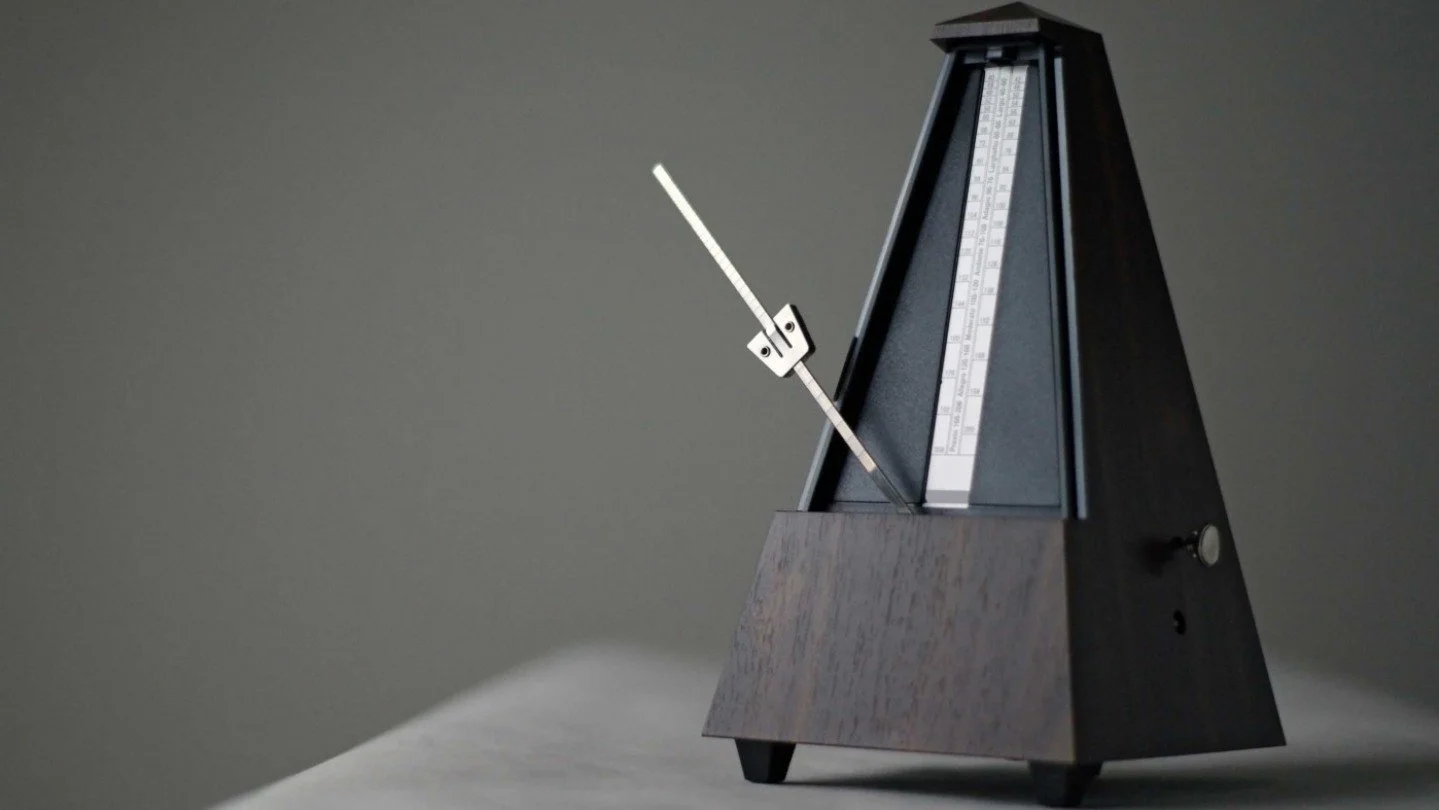David Motto’s Practice Tip of the Week: How Metronomes Define Your Priorities
THE IMPORTANCE OF MASTERING THE BASICS
Mastering the basics is what makes great musicians sound so great. Knowing that you have control of intonation, tone, rhythm, and time lets you focus on your phrasing and add a depth of emotion to your playing.
Mastering time often gets neglected as musicians work to perfect their other skills. But, having a mastery of time is what allows groups of musicians to work together successfully. It’s one of the most important elements of music if you want to perform successfully.
And, if you’re serious about controlling time, you need to have a metronome in your arsenal of musical accessories.
The difference between practicing with a metronome and practicing without one is like the difference between driving on the freeway with your eyes open and driving while blindfolded.
Why do I say that?
Because metronomes open us up to a universal truth for musicians:
We all tend to slow down when the music gets really difficult–and we don’t even know we’re doing this!
INCREASING YOUR AWARENESS
Many musicians think they’re doing just fine playing through their music. They’re completely unaware that they’re speeding up and slowing down as the notes get easier and harder to play.
With a metronome in place, you will have a guide to show you where you should be focusing your practice time.
Here’s what generally happens: A musician will be playing through something and will hit a section where they can’t keep up with their metronome.
This leads to surprise and sometimes causes frustration.
DEFINING PRACTICE PRIORITIES
Most musicians define getting behind the beat and feeling frustrated as a failure. Actually, it’s a huge practice success! You’ve just successfully defined an area where you can concentrate your efforts and make a real change in your abilities. That’s what you’re supposed to do in the practice room! You have found the Tough Stuff – those few, challenging notes that will eventually make or break your ability to perform well.
With this knowledge, you can slow that section down and teach your muscles to play it correctly. And, even at the very slow speeds necessary to train your muscles, you’ll still be using your metronome to guide you through the process.
The metronome itself can be the tool that points out where 80% of your focus should be in the practice room. Always look at these discoveries as successes and recognize that whatever you cannot play today – and figuring out a way to learn it – is the secret to creating breakthroughs in your technique and musicianship.
To Your Musical Success!
David Motto

